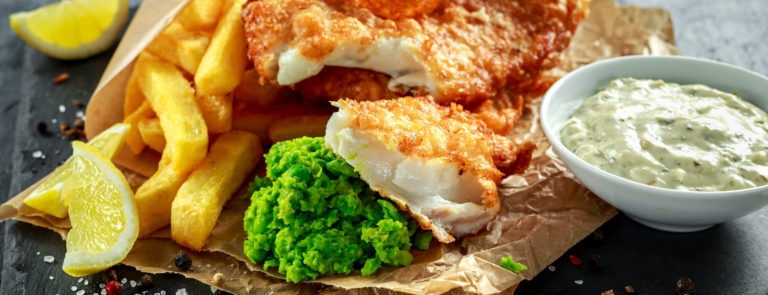A pescatarian diet is a type of vegetarian diet which also includes seafood. Many people choose to avoid meat but eat fish for health reasons, as including pescatarian diets, are associated with certain benefits.
1
Other people adopt a pescatarian diet for environmental reasons, as seafood production is less harmful to the environment than meat and poultry farming.
2
In this article, we’ll explain what a pescatarian diet is. We’ll analyse the pros and cons, so you can uncover whether or not a pescatarian diet would complement your lifestyle. Finally, we’ll explore how a pescatarian diet can help you achieve weight loss goals.
What is a pescatarian diet?
A pescatarian diet is a vegetarian diet where you also eat fish and seafood. There are no restrictions on how much seafood you can eat, and inversely, there are no requirements to take a set amount of seafood; you could have fish at every meal, once a day, week, or month.
Pescatarians may happily eat all variety of seafood, including fish, molluscs, and shellfish, as well as vegetables, grains, legumes, dairy products and milk (if they so choose).
Only meat, poultry, and game are prohibited in a pescatarian diet.
Pescatarian diet pros:
Pescatarian diets have health and lifestyle advantages, including:
1. Beneficial nutrients
Vegan and vegetarian diets are associated with a lower intake of essential nutrients, including Vitamin B12, calcium, protein and zinc.
3 The pescatarian diet typically provides more balance and nutrients than a vegan or vegetarian diet.
4
2. Rich in omega-3 fatty acids
Omega-3 fatty acids are linked to a wide variety of health benefits, including normal heart function.
5
3. Reduced environmental impact
Pescatarian diets are connected with lower carbon dioxide pollution and have a better environmental impact than carnivorous diets.
6
Pescatarian diet cons:
The pescatarian diet does have some disadvantages, including:
Exposure to mercury
Larger species of fish, including swordfish, tuna, and mackerel, contain high levels of mercury and selenium.
7,8 For this reason, the NHS advises pregnant women to limit their fish intake.
9
Pescatarian diet for weight loss
Plant-based diets, including the pescatarian diet, can help maintain normal weight.
10 Often, individuals who follow a plant-based diet have a lower BMI than those with an omnivorous diet.
11
However, emerging science suggests that this may be because people on restrictive diets are more conscientious about what they eat. The conscientiousness of health and wellness – no matter what diet you adhere to – is linked to lower weight.
12
Shop Food & Drink
Last updated: 21 December 2020
Sources
1
https://pubmed.ncbi.nlm.nih.gov/23836264/
2
https://www.ewg.org/meateatersguide/at-a-glance-brochure/
3
https://pubmed.ncbi.nlm.nih.gov/16441942/
4
https://www.ncbi.nlm.nih.gov/pmc/articles/PMC3967195/
5
https://pubmed.ncbi.nlm.nih.gov/19262590/
6
https://www.ewg.org/meateatersguide/at-a-glance-brochure/
7
https://pubmed.ncbi.nlm.nih.gov/25517058/
8
https://www.ncbi.nlm.nih.gov/pmc/articles/PMC4300121/
9
https://www.nhs.uk/common-health-questions/pregnancy/should-pregnant-and-breastfeeding-women-avoid-some-types-of-fish/
10
https://pubmed.ncbi.nlm.nih.gov/10479227/
11
https://www.ncbi.nlm.nih.gov/pmc/articles/PMC2671114/
12
https://faseb.onlinelibrary.wiley.com/doi/abs/10.1096/fasebj.31.1_supplement.788.11



